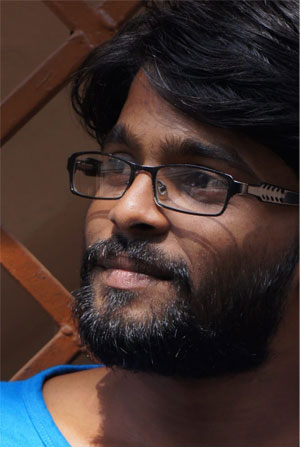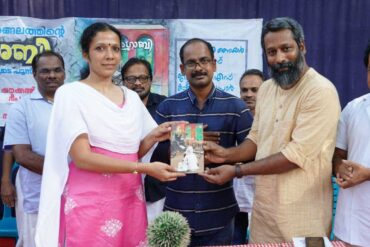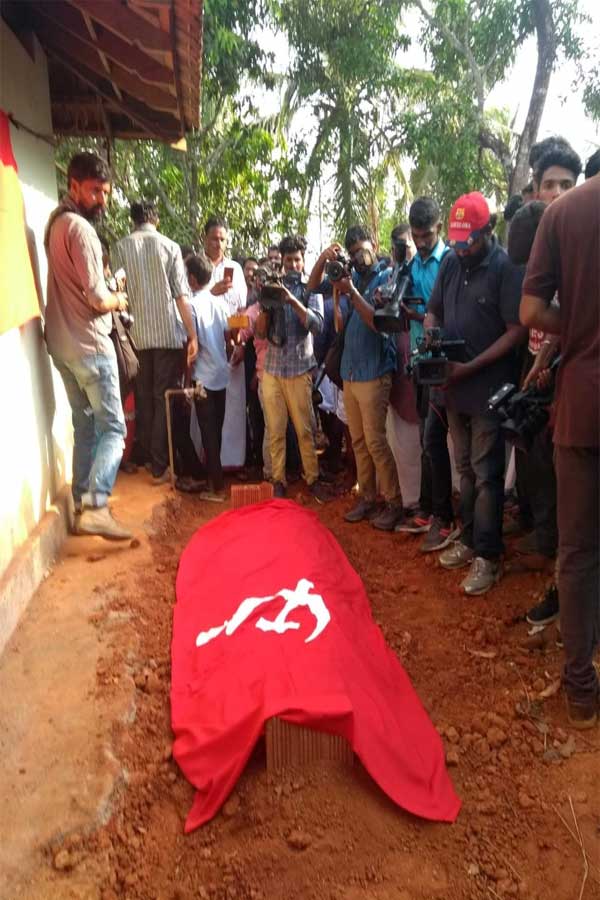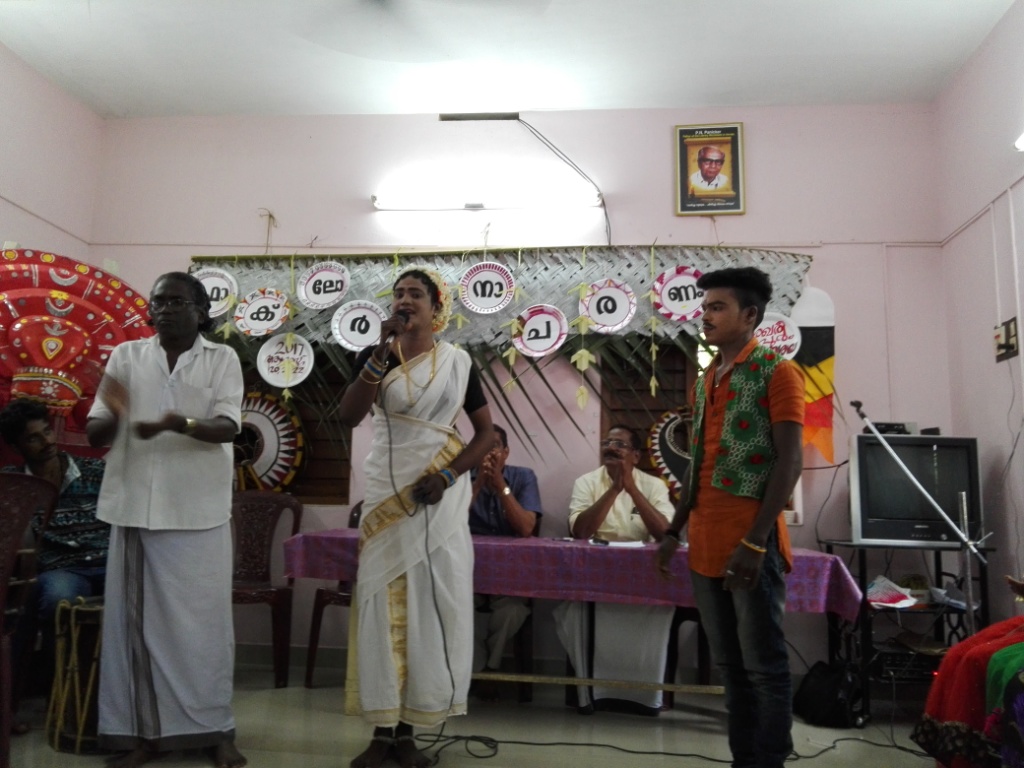When they brought C P Ismail home on a seven-hour parole four months back, the small house in Cherukupallil, in Kerala’s Malappuram, the entire village resembled a battle zone. About five or six SHOs in a convoy of heavy vehicles and one unit of the anti-Maoist Thuderbolt commandos accompanied the man. But in his house there was celebration. For one of them was back even if it was only for a few hours. The entire village had flocked to see him. “We made biryani that day,” said his brother Rasheed. The celebrations lasted only a couple of hours before Ismail bid goodbye to his mother Hamsa, mother of nine (six boys and three girls) and his siblings and was taken back to the Virur Central Jail.
Ismail was arrested in May 2015 from a hospital near Pune by the Maharastra Anti-Terrorist Squad along with the senior-most leader of the CPI (Maoist), Murali Kannempilly, son of former diplomat Kannempilly K Menon. More than five cases against Ismail are pending in Kerala. He is lodged in the Yerwada jail now.
But on March 8, this year, when they brought home Ismail’s younger brother, the young bearded revolutionary, C P Jaleel, there was no celebration or biryani. Jaleel came back in a coffin accompanied by some 3000 people. The previous day he was shot dead by the Kerala Police’s Thunderbolt Unit outside the Upavan resort in Wayanad. He was shot in the back—two shots at the back of the head and one that pierced his shoulder. Kerala police’s Operation Anaconda, launched by the Communist Party of India (Marxist) government in December 2018, had scored a major hit.
Apparently, Jaleel was trying to extort money from the resort. What is funny about this premise is that extortion continues to be a major cottage industry in Kerala, led by none other than the CPI (M)’s trade union wing, Centre for Indian Trade Unions (CITU). Also, according to sources, resorts in the area provide food and a bit of money to the Maoists occasionally. Jaleel and his friend carried no gun according to the CCTV footage from March 7 although Balram Kumar Upadhya, the IG of Police, insisted they did. The duo was on the way out of the resort when Jaleel was fatally shot at from behind. His friend escaped into the nearby forest.
Jaleel is the seventh offspring of the late Hamsa and wife Haleem of the Cherukapally House. They are seven brothers and two sisters. One by one, four brothers of the family have answered the call of armed revolution. The whereabouts of the eldest C P Moideen is unknown. C P Rasheed is in the human rights movement called Janakiya Manushavakasha Prasthanam and spends most of his time in courts and in protest meetings. Ismail is in Yerwada jail, C P Ansar worked as a driver in the Gulf and is now back in Malappuram. Jaleel gave up his life for the cause he believed in. The youngest Jishad is still a student. Sisters Khadeja, Shareefa and Noorjehan all live in the area with their families.
Malappuram is India’s only Muslim-majority district and has time and again voted the Indian Union Muslim League, an ally of the Congress. Flush with remittance money from the Gulf where most of the district’s youth go to work, Malappuram is choc-a-bloc with educational institutions and mosques interspersed with neon-lit shops gleaming with new money and aspiration. Neighboring Wayanad is Kerala’s tourism trump card with a clutch of idyllic resorts on forest tops through which gurgling monsoon streams flow. Wayand is also the hub of South India’s Maoist movement, stretching close to the border of three states—Tamil Nadu, Karnataka and Kerala. Now, of course, Wayanad is also Rahul Gandhi’s constituency, having just been elected with over four lakh majority, and hence, will be in the spotlight for other reasons too.
Marxism always reverberated in the Cherukapally family. From the Communist party, the brothers, one after the other, joined the Maoist movement, and left to take arms for the cause they believed in. The family has a long history of being part of the Left movement. Father Hamsa was a truck driver whose work took him across the country and which enabled him to pick up many languages. In that sense, he was a true Indian; he knew the places and the people. He came back with stories and songs collected from here and there. But his idea of India was wrapped in Marxism.
When he was not driving trucks, Hamsa was a member of the undivided Communist party. Whenever he was in town, he went to attend the Communist party rallies. Most of the time he took two of his eldest sons to those protest meetings. He held Moideen and Rasheed with either hand. “He was the only one who could not raise his hands while shouting slogans,” Rasheed remembers with a chuckle. Hamsa would also go to the mosque, though his heart lay elsewhere. Often he took some of his boys along but allowed them to stay outside and play or loiter around.
Slowly the kids too started raising political slogans. In the 90s, Moideen and Rasheed joined an outfit called Porattom (Struggle) which worked for agricultural workers. Protest meetings and satyagrahas were regular events. Soon, the police raids also started and the brothers were on the police watch list.

Among them, Jaleel was the most unlikely to turn revolutionary. Like all young boys in Malapuram, he loved football and went to watch ‘Sevens’ matches—a big draw in Malabar. Once, when he was returning from a Sevens match, the police stopped the bike he was riding on. When they learned about his identity, the cops warned him. His name and his family carried the weight of being rebels. He came home much anguished. One day, four years ago, Jaleel too left—never to return. Rasheed never saw him again.
In 2016, the Kerala police, no less encounter specialists than their counterparts elsewhere, shot dead Kuppu Devaraj—Central Committee member of the CPI (Maoist)—in the forests of Nilambur along with another well-known Maoist of the region, Ajitha. At that time they claimed Jaleel too was killed.
Jaleel soon acquired legendary status in and around Wayanad. His pictures came to be shared on Whatsapp. At his funeral, an old man cried inconsolably. “If he wanted money he could have asked me. I owed him some money for building my house.” Another old lady, with tears in her eyes, recounted how she once saw Jaleel chewing pan and gave him a tight slap.
The local mosque offered to bury him. But they buried him by the side of their small house, wrapped in a red flag. After four years, Jaleel had finally come home.







